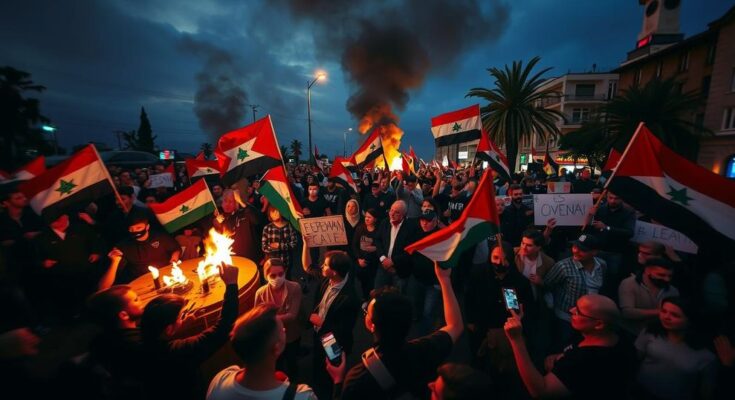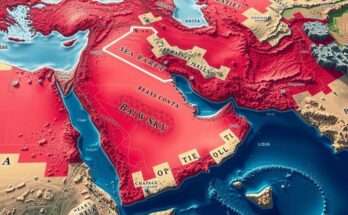Jordanian protesters rallied in Amman to denounce Israeli actions in Gaza and Lebanon, condemning U.S. support for Israel’s military operations and criticizing Arab governments’ inaction. They particularly addressed the humanitarian crisis in northern Gaza and the banning of UNRWA services, which many depend on for basic needs. With increasing civilian casualties reported, the protests also call for reassessing Jordan’s peace treaty with Israel.
In a powerful demonstration on a recent Friday in Amman, thousands of Jordanian protesters expressed vehement opposition to what they described as an ongoing campaign of genocide against the Palestinian population in Gaza and the bombings in Lebanon. Following Friday prayers, demonstrators marched through the streets, voicing their solidarity with the affected civilian populations and condemning the United States for its unwavering support of Israel amidst its military aggression. Protesters highlighted the dire humanitarian situation in northern Gaza, where Israel has intensified its offensive, exacerbating the suffering of countless civilians. They also showed outrage over Arab governments’ perceived inaction in the face of continuous massacres in the region. Notably, Murad Al-Adaileh, Secretary General of the Islamic Action Front Party, addressed the crowd, critiquing Israel’s recent prohibition of the UN Relief and Works Agency for Palestine Refugees in the Near East (UNRWA), which provides critical support to the refugee population. Al-Adaileh remarked, “Today, truthfully, America and the entity (Israel) are waging a war of extermination and famine against our people in Gaza, and on Jabalia specifically.” He articulated concerns about the potential consequences of Israel’s law aimed at dismantling UNRWA’s operations, which he asserted could lead to catastrophic repercussions for many Palestinians dependent on its services. Israel’s actions have historically included accusations against UNRWA staff of alleged collaboration with Hamas, assertions that remain unsubstantiated. The intensity of the protests in Jordan has been fueled by increasing reports of human rights abuses in Gaza and Lebanon and the rising civilian death tolls, which have surpassed 43,700 and 3,370, respectively, since the onset of hostilities on October 7, 2023. The Jordanian populace has increasingly demanded a cessation of diplomatic ties with Israel, particularly in light of the escalating violence.
The ongoing conflict in Gaza and Lebanon has prompted widespread protests across the Middle East, particularly in Jordan. This recent surge in demonstrations reflects the amplified humanitarian crisis faced by the Palestinian people, exacerbated by military actions initiated by Israel. The protests signify deep-rooted frustrations with not only Israeli policies but also the perceived complicity or inertia of neighboring Arab governments, along with the steadfast support of the United States for Israel, which many view as enabling the current situation.
The protests in Jordan represent a significant outcry against what demonstrators characterize as gross violations of human rights against the Palestinians. With calls for an end to Israel’s actions and for the Jordanian government to reassess its relationship with Israel, the protests underscore a growing solidarity with the Palestinian cause and a demand for accountability for the ongoing violence in the region. The sentiment articulated by speakers like Murad Al-Adaileh reflects widespread intellectual and emotional responses to the current crisis.
Original Source: www.presstv.ir




